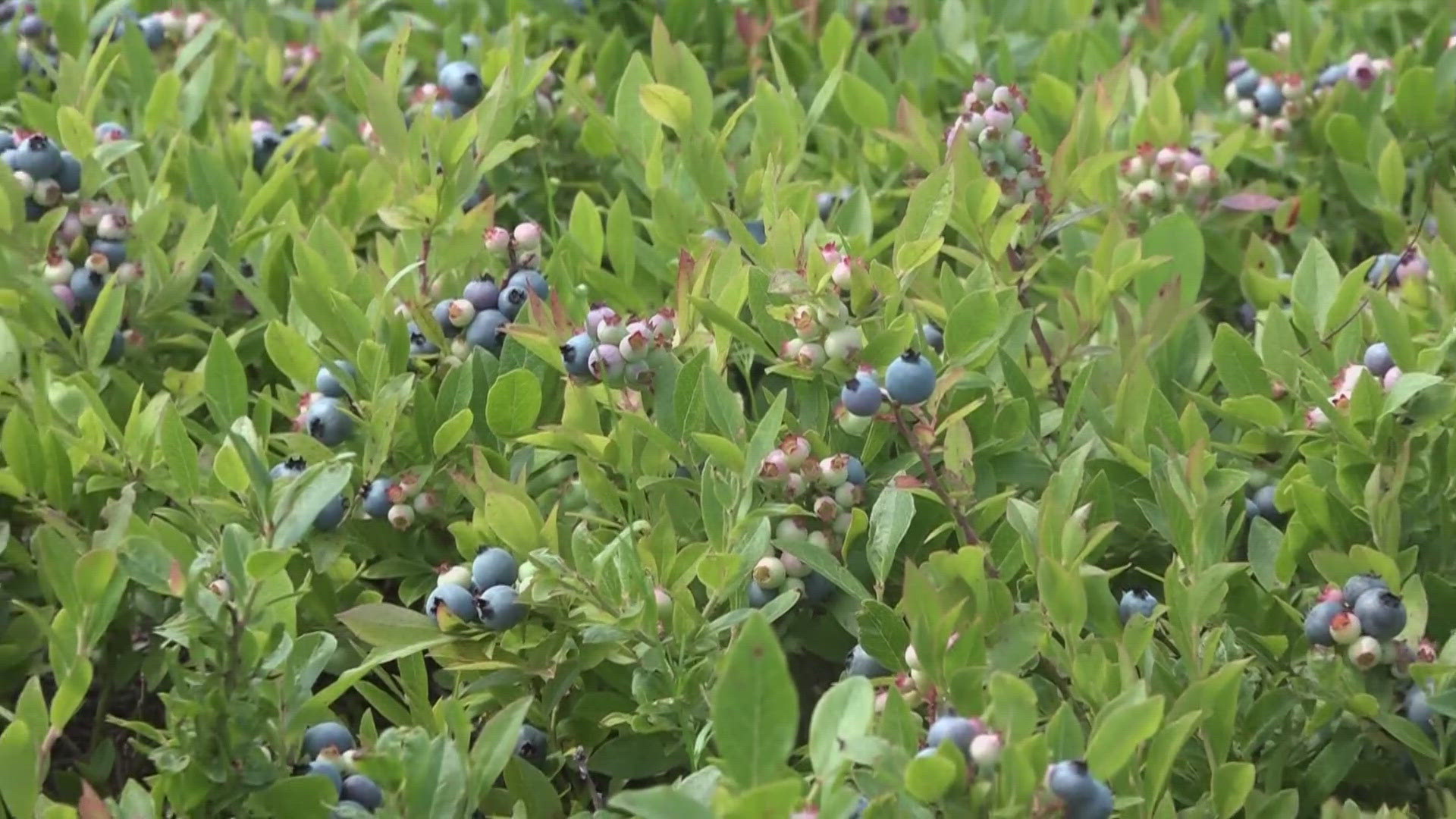OLD TOWN, Maine — Researchers at the University of Maine are collaborating with Wyman’s blueberries to study how wild blueberries are affected by climate change and to better learn how growers can sustain the crop.
Maine produces 99 percent of all blueberries in the U.S., but they are vulnerable to extreme weather patterns.
“Mother nature is No. 1 when it comes to growing blueberries,” blueberry grower Simeon Allen said.
Allen and his family have been harvesting wild blueberries in Maine for five generations.
Now, he’s the co-owner and general manager of W.R. Allen in Orland.
He said his blueberry crops are looking good this year, but certain weather conditions can cause them to fail.
“In 2022 when it was very dry, the blueberries just shriveled up and were falling off the plants, the plants were malnourished,” Allen said. “They're just not harvestable.”
Wild blueberry plants only produce fruit every other year, so they are particularly sensitive to environmental variability.
“If you lose half if not more, which we did in 2022, it's devastating because the money's been spent and there's no money coming in,” Allen said.
UMaine and Wyman’s are teaming up to figure out ways that growers like Allen can adapt to more extreme weather.
“We want to help wild blueberry growers stay in business,” Dr. Rachel Schattmann, assistant professor of sustainable agriculture at UMaine, said.
Schattmann is running a long-term blueberry experiment at the Wyman’s Wild Blueberry Research and Innovation Center at UMaine in Old Town.
Schattmann and UMaine students are simulating different weather conditions to see how blueberry plants react to drought and flood conditions.
They’re testing how blueberries grow in current climate conditions, and in climate conditions predicted by the end of the century, with higher temperatures and more rain.
“We're excited to see what happens to the plants, both in terms of how quickly they reach different developmental stages, what their yield is,” Schattmann said.
The project has been in development for two years, but this is the first time there is an experiment up and running at UMaine.
“They have the capacity for innovation,” Bruce Hall, director of agroecology at Wyman’s, said.
Wyman’s is combining its resources with UMaine to proactively protect its and other growers’ wild blueberry crops.
Wyman’s is celebrating its 150th year in business and hopes to sustain the industry for years to come.
“We’re able to provide an awesome education experience for students, exposure to our industry to students, and hopefully develop the next generation of sustainable agriculture leaders,” Hall said.
One of those students, Ali Bello, is working on his PHD in ecology and environmental science and moved to Maine from Nigeria to pursue wild blueberry research.
“Honestly, this is like a life-changing opportunity for me,” Bello said.
He was inspired by his family to make a difference with his work, not just in Maine but hopefully worldwide.
“Agricultural production in Nigeria, or in African countries generally, is affected by changing climate conditions, so my dad was thinking that I could be part of the solutions,” Bello said.
Looking at those solutions, one tool they’re already working on is a map that will show where wild blueberries can grow best in the state in the coming years.
Schattmann said she thinks it will be "very useful for growers.”
“Sometimes people lose hope, and so this is as much about providing that inspiration for hope as it for identifying the tools and techniques that growers can be successful to navigate their challenges on farms,” Hall said.
As for Allen, he’s hopeful that with some help, his family business will be able to succeed for generations to come.
“We keep striving on and we're gonna keep hopefully continuing on and trying to you know combat these issues,” Allen said.
It’s all to keep one of Maine’s most well-known crops thriving.

